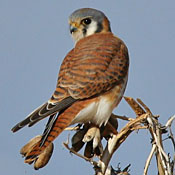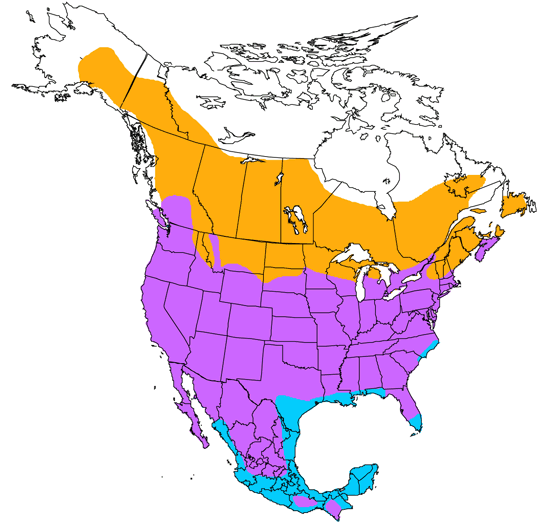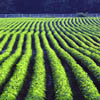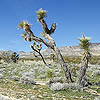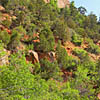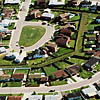American Kestrel
Falco sparverius

Hawk Like
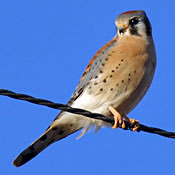
Length: 23 in. (58 cm )
Individuals of this small falcon are usually seen sitting high on telephone wires or poles, isolated tree tops or other vantage points over open fields, vegetated suburban areas, grasslands and desert. Adults frequently hover in the air and dive to capture large insects, small rodents, birds and occasionally lizards from the ground. They also sometimes capture flying insects from the air. The nest is in a tree cavity, abandoned woodpecker hole in saguaro cactus or large nest boxes when available.
The four-digit banding code is AMKE.
Bibliographic details:
- Article: American Kestrel
- Author(s): Dr. Biology
- Publisher: Arizona State University School of Life Sciences Ask A Biologist
- Site name: ASU - Ask A Biologist
- Date published: 13 Jul, 2017
- Date accessed: 28 July, 2025
- Link: https://askabiologist.asu.edu/activities/bird/american-kestrel
APA Style
Dr. Biology. (Thu, 07/13/2017 - 15:38). American Kestrel. ASU - Ask A Biologist. Retrieved from https://askabiologist.asu.edu/activities/bird/american-kestrel
Chicago Manual of Style
Dr. Biology. "American Kestrel". ASU - Ask A Biologist. 13 Jul 2017. https://askabiologist.asu.edu/activities/bird/american-kestrel
MLA 2017 Style
Dr. Biology. "American Kestrel". ASU - Ask A Biologist. 13 Jul 2017. ASU - Ask A Biologist, Web. https://askabiologist.asu.edu/activities/bird/american-kestrel
Be Part of
Ask A Biologist
By volunteering, or simply sending us feedback on the site. Scientists, teachers, writers, illustrators, and translators are all important to the program. If you are interested in helping with the website we have a Volunteers page to get the process started.



